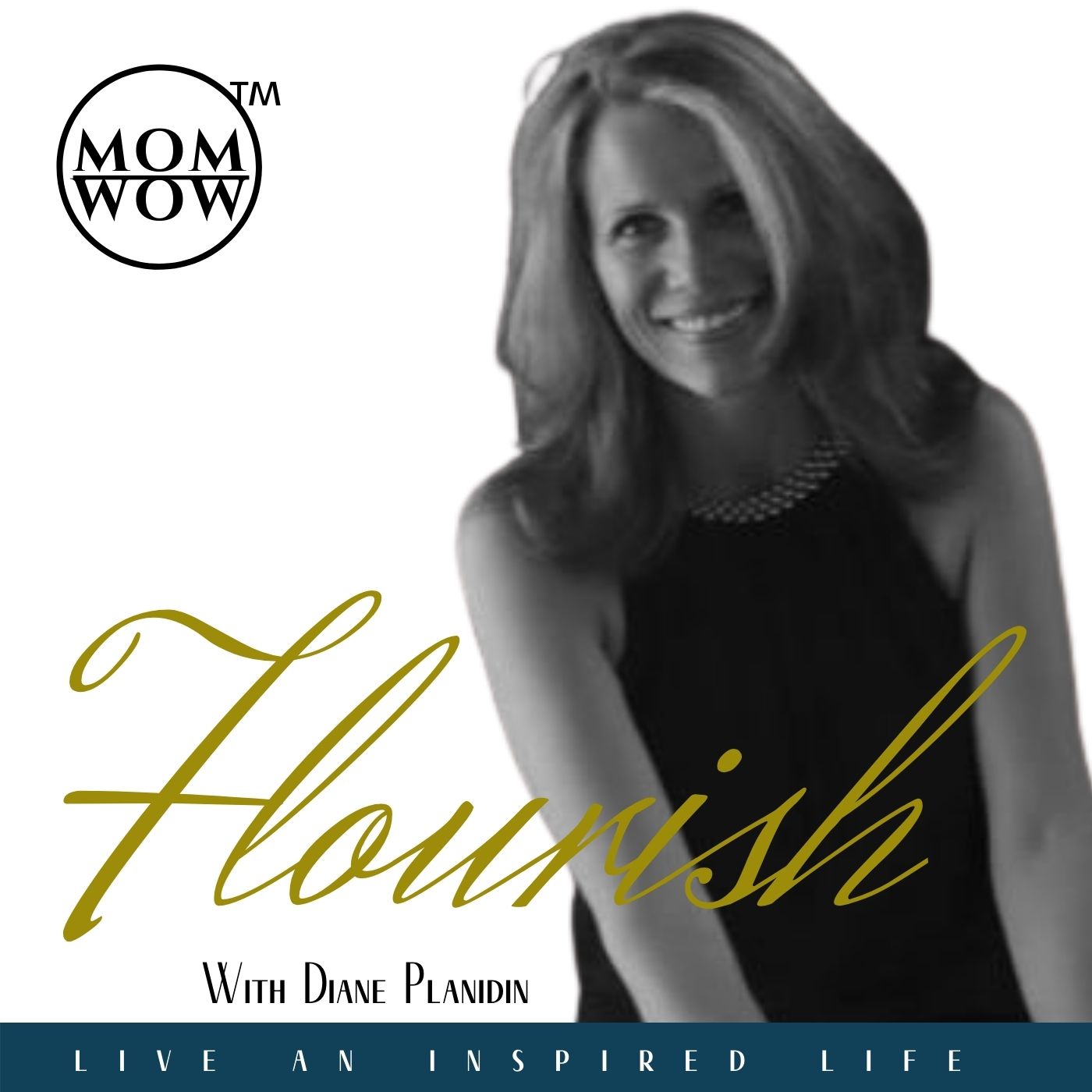
11.3K
Downloads
337
Episodes
I know that you believe in yourself, you believe in self-development and helping your children or those you influence live with a healthy mind, body and heart. For that, I applaud you. Live an Inspired Life and Flourish! The goal of this show is to help you not only raise healthy & happy children, but to also work on your own personal development. We are all born with a Gift. We are all born with Purpose. Life‘s journey is to hone and develop that Gift, as purpose changes within. Share your knowledge of self-empowerment with those you influence, after all it‘s easier to raise a child with a positive mindset than it is to fix a broken one. How you speak and how you act around your children becomes their inner voice. Once you have self-awareness it‘s easier to thrive and grow, be your child‘s inspiration and advocate for their well being. https://www.Flourish.Mom. #personaldevelopment #mindset #motivation #inspiration #successtips #selfesteem #parenting #Believe #selfhelp #goals #habits #timemanagement #success #selfcare #selflove #bestseller #inspired #FlourishMom #time #howto #coach #personalgrowth #mentalhealth #health #fitness #wellness #meditation #spirituality #loa #thesecret #womenempowerment #parentingtips #highperformance #inspiredlife #inspireddiane #greatness #growth
Episodes

Friday Jul 15, 2022
Stages of Memory | Psych-100 | Chapter 30 | Flourish with Diane Planidin
Friday Jul 15, 2022
Friday Jul 15, 2022
Psychologists conceptualize memory in terms of types, in terms of stages, and in terms of processes. In this section we will consider the two types of memory, explicit memory and implicit memory, and then the three major memory stages: sensory, short-term, and long-term (Atkinson & Shiffrin, 1968). Then, in the next section, we will consider the nature of long-term memory, with a particular emphasis on the cognitive techniques we can use to improve our memories. Our discussion will focus on the three processes that are central to long-term memory: encoding, storage, and retrieval. Learning Objectives -Compare and contrast explicit and implicit memory, identifying the features that define each. -Explain the function and duration of eidetic and echoic memories. -Summarize the capacities of short-term memory and explain how working memory is used to process information in it. When we assess memory by asking a person to consciously remember things, we are measuring explicit memory. Explicit memory refers to knowledge or experiences that can be consciously remembered. There are two types of explicit memory: episodic and semantic. Episodic memory refers to the firsthand experiences that we have had (e.g., recollections of our high school graduation day or of the fantastic dinner we had in New York last year). Semantic memory refers to our knowledge of facts and concepts about the world (e.g., that the absolute value of −90 is greater than the absolute value of 9 and that one definition of the word “affect” is “the experience of feeling or emotion”). chart of different types of memory
Explicit memory is assessed using measures in which the individual being tested must consciously attempt to remember the information. A recall memory test is a measure of explicit memory that involves bringing from memory information that has previously been remembered. We rely on our recall memory when we take an essay test, because the test requires us to generate previously remembered information. A multiple-choice test is an example of a recognition memory test, a measure of explicit memory that involves determining whether information has been seen or learned before. Your own experiences taking tests will probably lead you to agree with the scientific research finding that recall is more difficult than recognition.
Recall, such as required on essay tests, involves two steps: first generating an answer and then determining whether it seems to be the correct one. Recognition, as on multiple-choice test, only involves determining which item from a list seems most correct (Haist, Shimamura, & Squire, 1992). Although they involve different processes, recall and recognition memory measures tend to be correlated. Students who do better on a multiple-choice exam will also, by and large, do better on an essay exam (Bridgeman & Morgan, 1996).
A third way of measuring memory is known as relearning (Nelson, 1985). Measures of relearning (or savings) assess how much more quickly information is processed or learned when it is studied again after it has already been learned but then forgotten. If you have taken some French courses in the past, for instance, you might have forgotten most of the vocabulary you learned. But if you were to work on your French again, you’d learn the vocabulary much faster the second time around. Relearning can be a more sensitive measure of memory than either recall or recognition because it allows assessing memory in terms of “how much” or “how fast” rather than simply “correct” versus “incorrect” responses. Relearning also allows us to measure memory for procedures like driving a car or playing a piano piece, as well as memory for facts and figures.
Find out more about Flourish at the links below:
➡️ Website: https://www.Flourish.Mom
➡️ Facebook: https://www.Facebook.Com/Flourish.Mom
➡️ Twitter: https://www.Twitter.Com/FlourishMom
➡️ Instagram: https://www.Instagram.com/FlourishMom
➡️ Pinterest: https://www.Pinterest.ca/WowFlourishMom
➡️ Watch on YouTube: https://youtu.be/yszOHssK8SU
PSYC 100: Principles of Psychology F21 by PSYC100 is licensed under a Creative Commons Attribution-NonCommercial-ShareAlike 4.0 International License, except where otherwise noted.
Open Courseware Link: Memories as Types and Stages. (2019). Adapted for use by Queen’s University. Original chapter in C. Stangor and J. Walinga (Eds.), Introduction to Psychology: 1st Canadian Edition. BCcampus. Retrieved from https://opentextbc.ca/introductiontop....
Note: I am a student and not a teacher - I am sharing my learning journey with you!

Comments (0)
To leave or reply to comments, please download free Podbean or
No Comments
To leave or reply to comments,
please download free Podbean App.